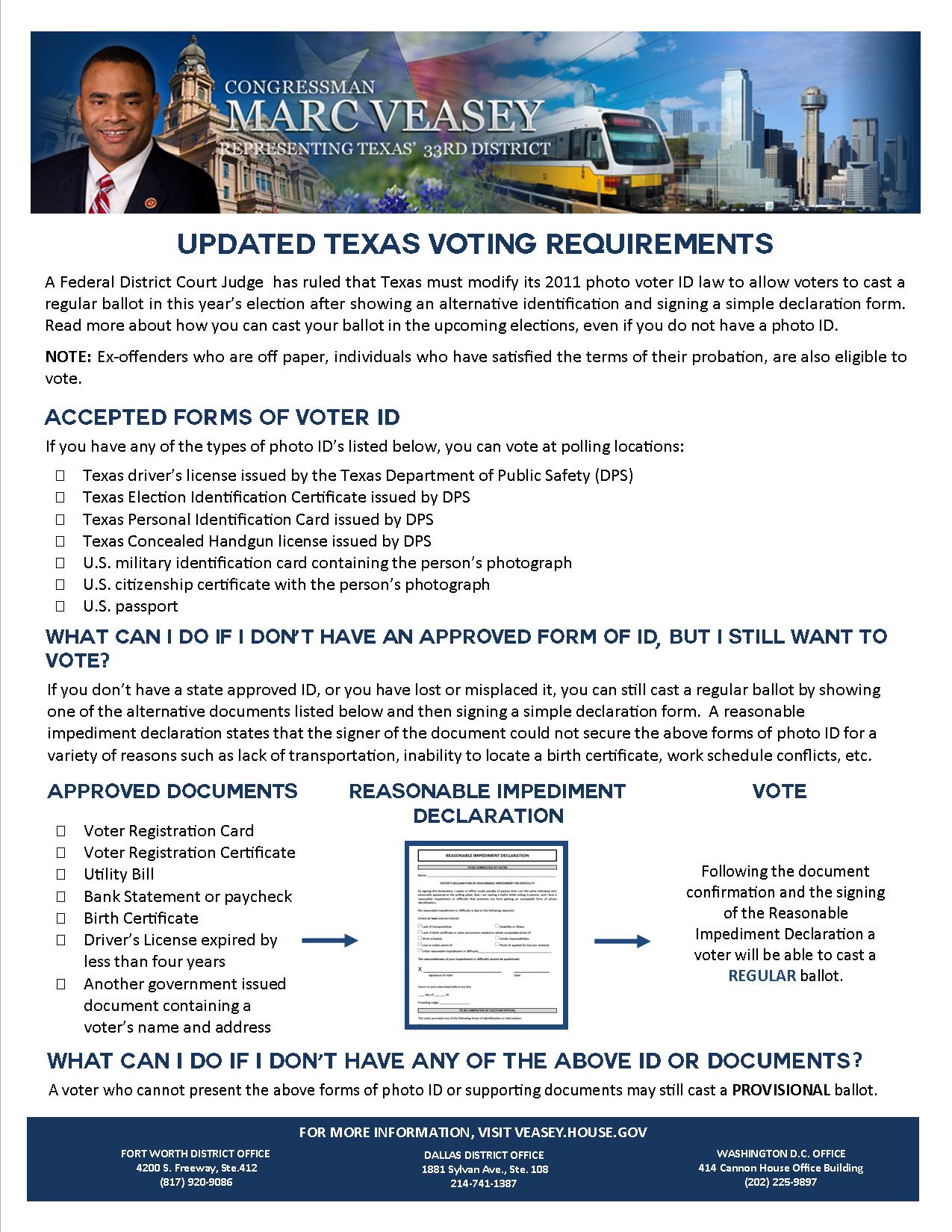Voting Rights
Fort Worth, TX – Today, Congressman Marc Veasey, TX-33, hosted local community leaders at Mount Zion Baptist Church to commemorate the 50th anniversary of the Voting Rights Act. Local civil rights leaders shared their firsthand accounts from the frontline of the fight for the right to vote.
Congressman Marc Veasey, a Democrat from Fort Worth, was lead plaintiff in the case. He joined KERA's Bill Zeeble for a look at the decision.
Interview Highlights: Marc Veasey on ...
WASHINGTON, D.C. – Congressman Marc Veasey, TX-33, released the following statement marking the 50th anniversary of the Voting Rights Act of 1965:
Rep. Marc Veasey, D-Fort Worth, and lead plaintiff in the case, applauded the bittersweet victory.
"As a champion for voting rights, I am proud that with this decision, the U.S. Court of Appeals for the 5th Circuit has taken the first steps towards ensuring that all Texans have unfettered access to the ballot box," he said in a statement.
In a timely decision issued Wednesday, a U.S. appeals court ruled that Texas's tough voter ID law, adopted in 2013, would effectively discriminate against minority voters in violation of the Voting Rights Act. The ruling has only fueled the Democratic criticisms of similar laws around the country, while amplifying their calls to renew VRA protections shot down by the Supreme Court two years ago.
WASHINGTON, D.C. – Congressman Marc Veasey, TX-33, released the following statement after the U.S. Court of Appeals for the Fifth Circuit struck down Texas' voter ID law:
The ruling, which came one day before the Voting Rights Act turned 50 years old, was a narrow victory for critics of the Texas law. It prolonged a long-winding legal battle over legislation that some called the strictest in the nation.
The three-judge panel's unanimous decision sent the case back to a lower court, which will decide how Texas should fix its problems. But for now, the law stands as is.
U.S. Rep. Marc Veasey, D-Fort Worth, the lead plaintiff in the case, said that the court had taken steps toward giving all Texans full voting access.
The case, Veasey v. Abbott, carries the names of U.S. Rep. Marc Veasey, a Democrat from Fort Worth and the primary plaintiff in the case, and Republican Gov. Greg Abbott, who is the defendant.
[…]
Civil rights groups -- later joined by the Justice Department -- responded with a lawsuit to block the law. The case was heard by Ramos, an appointee of President Barack Obama, and she ruled in favor of Veasey in October 2014.

Former state Sen. Wendy Davis, D-Fort Worth, and U.S. Rep. Marc Veasey, D-Fort Worth, Max Faulkner Star-Telegram archives
